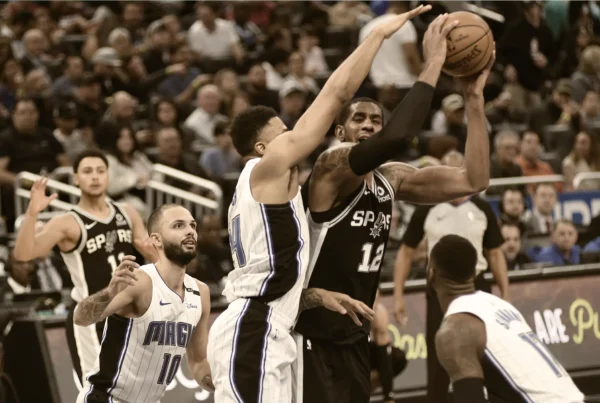If you have to tell everyone that you are the leader in the room, you are not the leader in the room.
In the English language, a maxim is defined as ‘a short, pithy statement expressing a general truth or rule of conduct’. If we delve further, ‘pithy’ represents language that is ‘concise and forcefully expressive’. Looking back over my life, there have been a few maxims that have not only stuck with me (such as the one above) but also aided in the codification of my beliefs. As well as the expectations that I have of myself and others. If the above is true (my belief), I would like to submit a corollary:
If you have to tell everyone that you are the smartest person in the room, you are not the smartest person in the room.
I recently had the opportunity to be in a (virtual) room where I led a discussion on how a specific technological framework could aid in the detection, identification, and mitigation of existing and emerging threats to an organization. And what to do about it.
What struck me most odd was the seeming disinterest in being present and learning something to new from a select few in the room. Even if it were to assess whether or not this technology could improve upon their existing practices. Over the course of a few hours, it was conveyed to me numerous times just how ‘senior’ these select few of the attendees were that their experience level rendered our discussion to have little merit.
Admittedly, this framework was ‘new’ to them and somewhat of a stark contrast to their existing practices. However, the underlying assumptions from a select few in the room negated the opportunity for others to be able to learn, grow, develop. Or at least allow others in the room to form their own opinion on the value of what was being presented. In contrast, when the ‘senior’ personnel departed the discussion, the ‘temperature in the room’ drastically changed. Discussion emerged. Perspectives shared. Learning occurred. And as always is the case, I took away a much better understanding of the problem at hand. And it is my belief that those remained did as well.
My experience once again caused me to ask the question: As a leader, what am I missing out on by stating that I am the smartest person in the room (explicitly with words or implicitly with my actions)? What idea do I close off when I lose the ability to be inquisitive? To be a learner? What do I miss out on when I am not open to the fact that I have more to learn?
Worse still, what environment am I creating as a leader when I am limiting the opportunity of those I stand shoulder to shoulder with to grow and develop? To present and hear ideas from a different perspective? All in an effort to reveal opportunities or uncertainties not previously seen. The opportunity to receive better ideas. What are we all missing out on?
I can think of no better example then the story of Richard Mon Montañez, executive vice president of PepsiCo[1]. Elementary school dropout. Entered the labor force. Applied for a job as a janitor for his local Frito Lay manufacturer. Received some great advice from his grandfather (“Make sure that floor shines,” the man told his grandson. “And let them know that a Montañez mopped it.”)[2]. Answered the Chief Executive Officer’s call to ‘act like an owner’ and presented an idea that became Frito-Lay’s top selling snack[3]. Although it has been reported that not of all of the executive team was thrilled with the idea in part due to its source, the CEO that made the initial call to action proved to be the voice willing to listen, learn, and take action on a great idea regardless of its ‘rank’.
This story resonates with me personally because of its illustration of one of my core values: worthiness. Mr. Montañez was not worthy because he had a great idea. He already had infinite value and worth as a human being. Instead, out of that worthiness, the story demonstrates my personal standard that ‘Great ideas have no rank’. That, regardless of position, expertise, or experience, we can all learn, grow, and develop. And make a deep, meaning, and lasting impact.
This story also resonates with me because it highlights a time where I violated my own core value and accompanying standard. When a trusted leader came to me and said, ‘You know, sir…you were a lot more willing to listen to ideas when we were not in combat.’
Being ‘closed-minded’ as a leader does not necessarily stem from arrogance or maliciousness. On the contrary, I felt so much burden to ‘do what was right’ in an attempt to protect our soldier’s lives that I was inadvertently closing off the ability to hear different perspectives, and subsequently ideas, from those that cared just as deeply as I did. And I can guarantee that I missed out on opportunities to be a part of something greater because of it.
As a leader, I must look for all sources of differing perspectives to reveal context which I may be blind, to reduce uncertainties associated with a complex and combative environment, all in an effort to take action on the best ideas that permeate throughout all echelons of the organization.
Because great ideas have no rank.
Recommended Outline: The Importance of Being a Lifelong Learner
- Why being a lifelong learner is the hallmark of a real leader
- “Horrible” training story – what happened, details of how it escalated, and how you felt, the temperature in the room changing as soon as they left,
- “If you’re the senior leader, and you need to tell everyone, odds are you’re not the leader.”
- How it relates back to your standard of worthiness
[1] https://www.inc.com/cynthia-than/the-mexican-janitor-who-invented-flamin-hot-cheetos.html
[2] https://thehustle.co/hot-cheetos-inventor/
[3] https://www.inc.com/cynthia-than/the-mexican-janitor-who-invented-flamin-hot-cheetos.html





